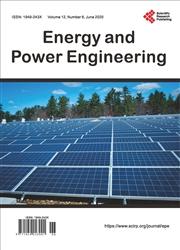Solar Photovoltaics Development in Nigeria: Drivers, Barriers, and Policies
引用次数: 0
Abstract
Energy access is vital to a nation’s economic growth and its populace’s social well-being. Still, there is a lack of adequate energy in Nigeria, negatively affecting the country’s socio-economic development. Due to the inadequate energy supply, some manufacturing companies shut their operations, and most Nigerians now use backup generators (BUGs) with their attendant health hazards, environmental pollution, and global warming. The need for energy access and a sustainable energy supply through renewable energy (RE) resources necessitates adopting solar photovoltaics (PV) in Nigeria. Studies on Nigeria’s energy accessibility and sustainability are generally on RE development and a few on solar PV applications. This research covers the need for an in-depth analysis of the growth of solar PV in Nigeria, and the research question is: What factors promote or limit the adoption of solar photovoltaics in Nigeria? A method of Systematic Literature Review (SLR) and Thematic Analysis (TA) is employed for the analysis. The research findings are divided into drivers, barriers, and policies. Some identified factors promoting the adoption of solar PV are energy poverty and the urgency to improve electricity supply, the ease of its operation and maintenance, and the Nigerian government’s commitment to clean electricity supply with policy initiatives and increased awareness of solar PV applications. Conversely, some noticed factors mitigating the growth of solar PV are poor tariff systems, dual subsidies of electricity and petroleum, and lack of finance and economic incentives.尼日利亚的太阳能光伏发展:驱动因素、障碍和政策
能源获取对一个国家的经济增长和民众的社会福祉至关重要。尽管如此,尼日利亚仍然缺乏足够的能源,这对该国的社会经济发展产生了负面影响。由于能源供应不足,一些制造公司关闭了他们的业务,大多数尼日利亚人现在使用备用发电机(bug),随之而来的是健康危害,环境污染和全球变暖。通过可再生能源(RE)资源获得能源和可持续能源供应的需求使得尼日利亚必须采用太阳能光伏发电(PV)。关于尼日利亚能源可及性和可持续性的研究一般是关于可再生能源的发展,少数是关于太阳能光伏的应用。本研究涵盖了对尼日利亚太阳能光伏增长的深入分析,研究问题是:哪些因素促进或限制了尼日利亚太阳能光伏的采用?本文采用系统文献综述(SLR)和主题分析法(TA)进行分析。研究结果分为驱动因素、障碍和政策。一些已确定的促进太阳能光伏采用的因素是能源贫困和改善电力供应的紧迫性,其操作和维护的便利性,以及尼日利亚政府承诺通过政策举措和提高对太阳能光伏应用的认识来清洁电力供应。相反,一些值得注意的减缓太阳能光伏增长的因素是糟糕的关税制度,电力和石油的双重补贴,以及缺乏财政和经济激励。
本文章由计算机程序翻译,如有差异,请以英文原文为准。
求助全文
约1分钟内获得全文
求助全文

 求助内容:
求助内容: 应助结果提醒方式:
应助结果提醒方式:


